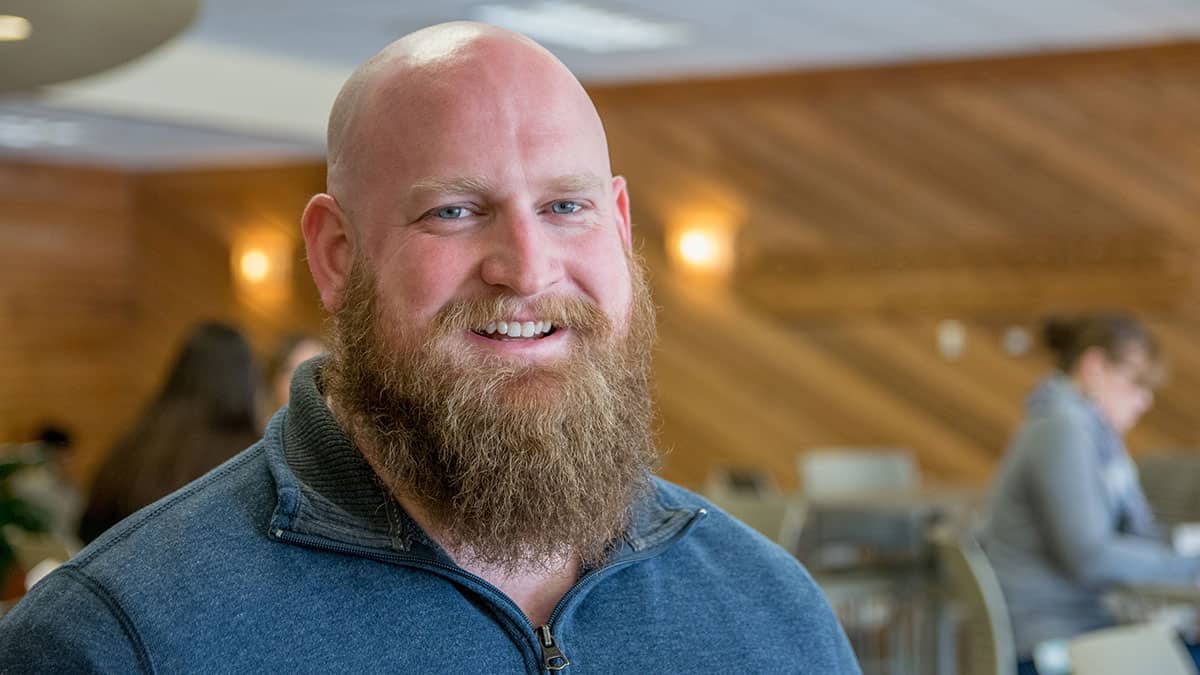A welcome surprise
When Justyn had to report for duty, he and his wife began to prepare for a pay cut. Those plans were put on hold when he learned differential pay was on its way.

An opportunity that offered more
Justyn spent eight years in the Army, from deployment in Afghanistan to service in the Army National Guard. For part of that time, he held a job as a mechanic at another company.
It was our company, though, that gave him a job opportunity that aligned better with the satellite communications skills he developed in the Army. We also accommodated his family in ways that ensured they did not have to experience a pay cut.
When a guardsman or reservist is called to duty, companies are required to hold their positions for their return. At our company, active duty associates also receive a financial boost.
Military pay often is less than what people might earn with a private employer. We make sure the guardsman or reservist does not lose out, so we provide differential pay. This lets the soldier retain the same income level.
The relief of differential pay
“The company really tries to make sure you do not experience a financial hardship because of your service,” Justyn says. He learned this when he had to report for training. He and his wife just assumed they would have to find a way to make ends meet on the lower military pay. Then, Justyn got a call from our Human Resources department informing him that he would get differential pay immediately. It was a relief.
“They were so proactive about it. I didn’t even have to think about it. They took care of everything.”

Identifying skills that translate
Justyn says this caring attitude extends to other approaches taken by the company. For example, company recruiters partner with the Scotts Veterans Network, an employee resource group, to develop skill translations for a range of company positions. It is not always apparent how a military skill might translate into a civilian corporate skill.
“You might have skills that equate to a manager position,” Justyn says. “Our recruiters work with the veterans network to help identify commonalities to open doors for veterans.”
He is an example. Justyn was a satellite communications specialist in the Army whose first job while in the guard was as a mechanic. In the Army, he worked on the migration to Windows 7. We brought him on board as a desktop analyst to undertake similar Windows migration work here.
Since then, he has earned promotions and increasing responsibilities, moving to a Google senior support analyst and manager of associate productivity overseeing the team that provides desktop support and manages the Google G Suite.
“I’ve had three job rotations since joining Scotts in 2014,” he says. “It’s a place where you can find variety, continue to learn and build a career beyond the military.”

